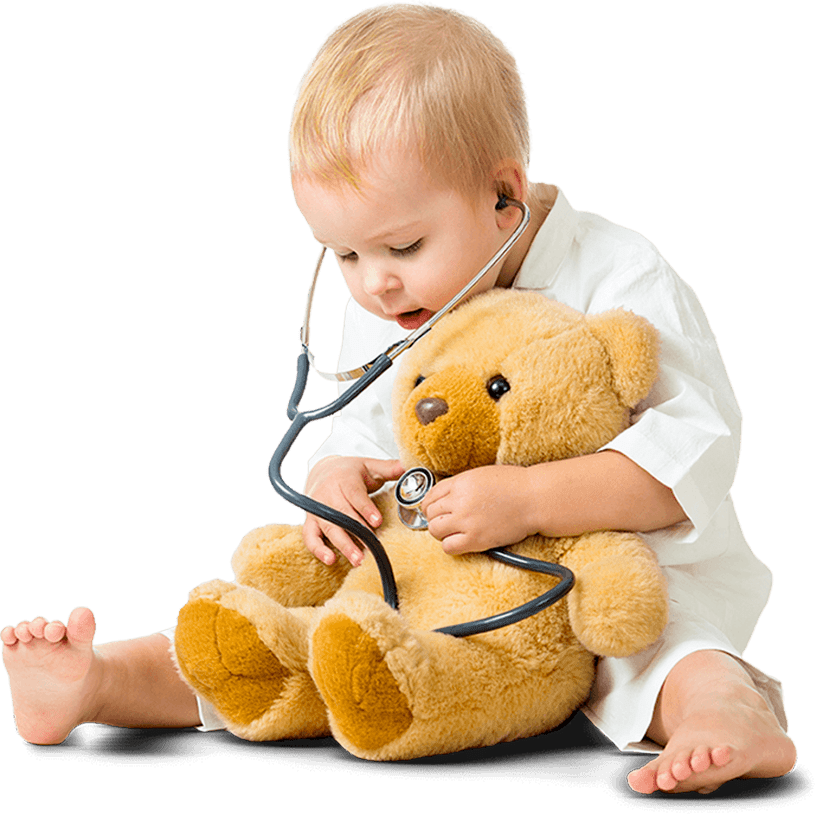Paediatric Cardiology

There are many categories of heart disease affecting children of all ages. Some of these are congenital disorders while others are acquired. In addition, some types of heart disease are minor, while others are chronic and come with severe complications. In general, these are common types of childhood heart disease:
- Congenital heart disease: this kind of heart condition is present at the time of birth. This can have a long-term impact on the overall health of the child if not corrected in time. Types of congenital heart defects affecting infants include;
- Heart valve condition: this includes narrowing of the aortic valve and changes in blood flow.
- Hypoplastic left heart syndrome: occurs when the left side of the heart is not fully developed.
- Atrial septal defects
- Ventricular septal defects
- Patent duct arteries
- Tetralogy of Fallot: consists of four distinct defects: a narrowed trajectory between the pulmonary artery and the right ventricle, a hole in the ventricular septum, a thickened right heart, and a displaced aorta.
- Arrhythmia: which is an abnormal heart rhythm that causes the heart to beat irregularly. The categories of arrhythmias that affect children are tachycardia (rapid heart rate), bradycardia (slow heart rate), and long-term T-syndrome.
- Atherosclerosis: this includes the accumulation of fat or cholesterol-filled plaques in the arteries. This makes the arteries narrow and stiff, hence increasing the risk of heart attacks and blood clots.
- Kawasaki disease: this heart condition inflames blood vessels located in the throat, arms, legs, lips, and mouth. It causes fever and swollen lymph nodes.
- Rheumatic heart disease: this is a serious condition that can lead to permanent damage to the heart muscle and heart valves.
- Pericarditis: a disorder caused by inflammation or infection in the membrane or thin sac that surrounds the heart.
- Heart murmur: a sound created when blood circulates through the heart’s chambers, valves, and the vessels near the heart.
- Viral infections: a virus can sometimes affect normal heart health. It basically causes myocarditis, which can change the heart’s ability to pump blood to all parts of the body.
Signs and symptoms of childhood heart disorders
A paediatric cardiologist treats children from birth to 18 years of age. The paediatric cardiologist focuses on critical congenital heart malformations, infectious and inflammatory diseases of the cardiovascular system, Kawasaki disease, and much more. The task of a paediatric cardiologist is to diagnose, prevent and treat congenital and acquired pathologies of the cardiovascular system in children and adolescents.
Cardiac procedures include:
- Echocardiography (scanning the heart of the infant or child)
- Newborn cardiac assessments
- ECGs (electrocardiograms)
- Holter Monitoring (electrocardiogram monitoring in our clinic or at home over a period of 24-48-72 hours) for cases of palpitations or suspected rhythm problems
- Heart murmur assessments
- Episodes of fast heart rate assessments
- Fainting episodes assessments and management
- Liaise with surgical cardiac centres and overseas teams, particularly in relation to complex cardiac conditions that require intervention
- Second opinion related to heart problems in children
- Opinion related to a family history of cardiac problems
- Dizziness
- Dyspnea
- High Blood Pressure
- Heart Rate Changes
- Chest Pain
- Weakening
- Problems With Exercise Or Inability To Exercise
- PPoor Nutrition
- Rapid Breathing
- Lung Infection
- Low Or Abnormal Weight Gain

About the Doctor
Dr. Talal Farha
Consultant Paediatrician;
Special Interest in Paediatric Cardiology

Why Choose Us

